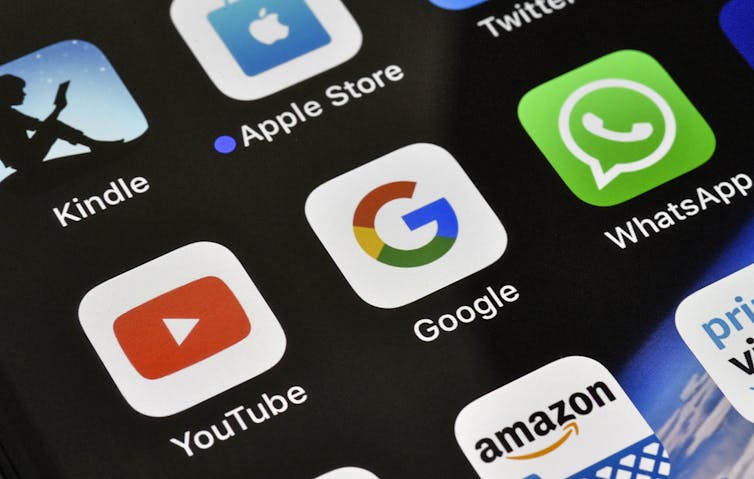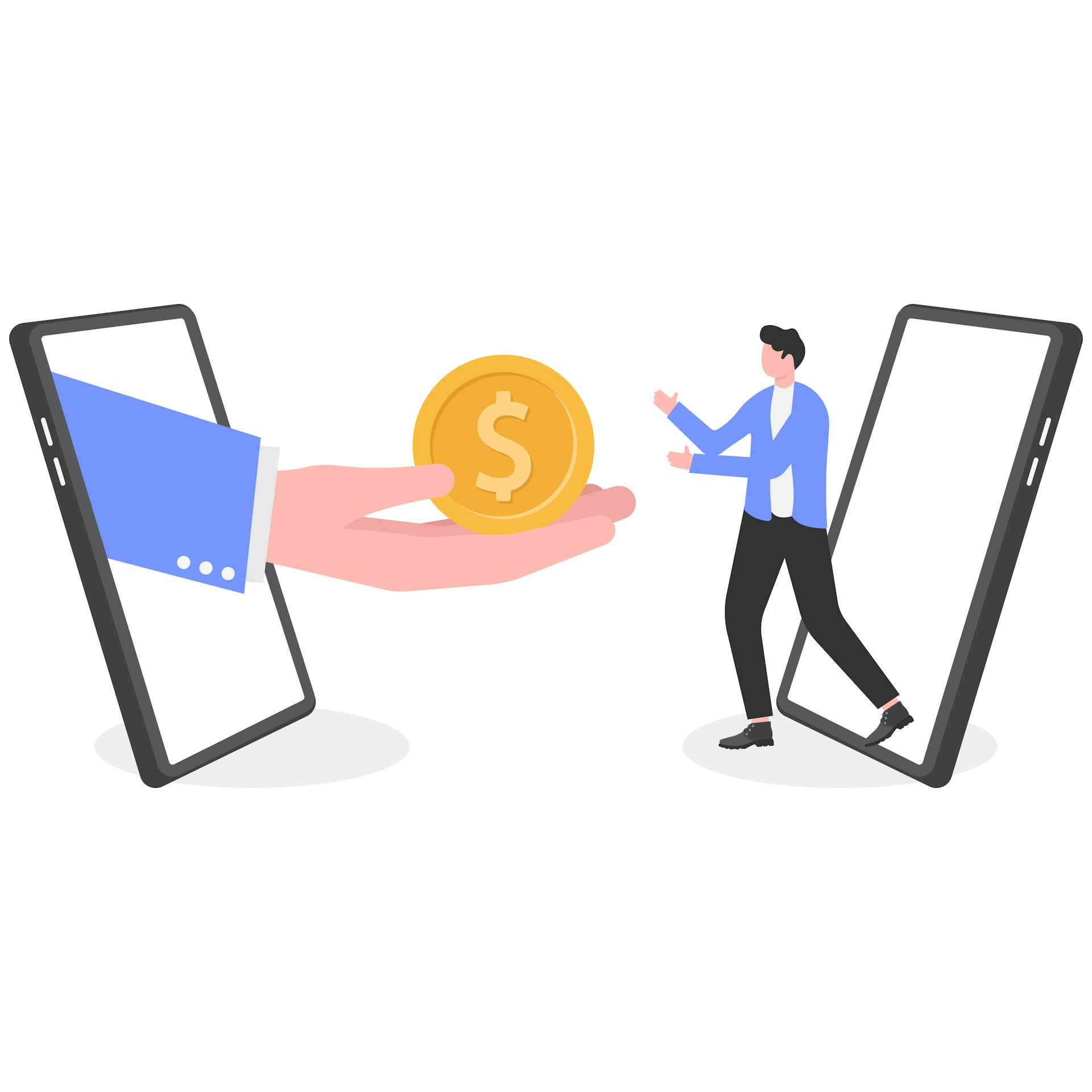Spending too much time on your phone? Behavioral science has an app for that
Americans are spending almost three and a half hours on their phones and tablets every day, twice the amount just five years ago. A behavioral scientist offers a few tips on how to take control.

We’re squandering increasing amounts of time distracted by our phones. And that’s taking a serious toll on our mental and physical well-being.
In 2017, U.S. adults spent an average of three hours and 20 minutes a day using their smartphones and tablets. This is double the amount from just five years ago, according to an annual survey of internet trends. Another survey suggests most of that time is spent on arguably unproductive activities like Facebook, gaming and other types of social media.
This is bad news because research by myself and others shows that excessive technology use is linked to depression, accidents and even death.
Perhaps ironically, software developers themselves have been on the forefront of efforts to solve this problem by creating apps that aim to help users disconnect from their devices. Some apps reward or even “punish” you for staying off your phone for set periods of time. Others block you from accessing certain sites or activities altogether.
But what makes some of them work better than others? Behavioral science, my area of expertise, can shed some light.

Why we need help
Technology is meant to be addictive. And a society that is “mobile dependent” has a hard time spending even minutes away from their app-enabled smartphones.
This addiction has consequences.
The most serious, of course, is when it leads to fatalities, like those that result from distracted driving or even taking selfies.
But it also takes a serious toll on our mental health, as my own research has demonstrated. One experiment I conducted with a colleague found that looking at Facebook profiles of people having fun at parties made new college students feel like they didn’t belong. Another study suggested that people who spent more time using social media were less happy.
Ultimately, our phones’ constant connection to the internet – and our constant connection to our phones – means that we miss out on bonding with those that we care about most, lowering everyone’s happiness in the process.
Trying to unplug
The good news is that most of us aren’t oblivious to the negative effects of technology and have a strong desire to disconnect.
As you might expect in a market economy, businesses are doing their best to give us what we want. Examples include a Brooklyn-based startup selling bare-bones phones without an internet connection, hotels offering families discounts if they give up their mobiles during their stay, and resorts creating packages built on the idea of creating sacred spaces where consumers leave their devices at home.
And app developers have also risen to the challenge with software aimed at helping us use our phones less. Behavioral science research offers some insights into what features you should look for in a productivity app.

Goal setting is key
Research suggests that you should download applications that ask you to set specific goals that are tied to concrete actions. Making commitments upfront can be a powerful motivator, even more so than financial incentives.
For example, Moment asks users to set specific goals around technology use and tie them to daily actions, such as by asking you to reduce your technology use each time you send or receive a calendar invite. Offtime prompts users with warnings when you are about to exceed the limits for an online activity you’ve set.
Flipd takes it a step further and actually completely blocks certain phone apps once users have exceeded pre-determined targets – even if you try to reset the device – making it the ultimate commitment app. Similarly, Cold Turkey Blocker prevents users from accessing literally any other function of their computer for a certain period of time until they have completed self-set goals, like writing.
Defaults are your friend
Choose an application that helps you alter your “defaults.”
In their award-winning book “Nudge,” for example, Nobel Prize winner Richard Thaler and Harvard law professor Cass Sunstein showed how adjusting the default for a company’s retirement plan – such as by requiring employees to opt out rather than opt in – makes it easier to achieve a goal like saving enough for your golden years.
Your phone’s applications can take advantage of that technique as well. Freedom, for example, is an app that automatically blocks users from visiting “distracting” apps and websites, such as social media and video games. Ransomly alters the default setting of a room – such as the dining room – to be phone and screen free by using a sensor and app to automatically turn off all devices when they’re in the vicinity.
So look for apps that modify the default settings on your phone in a way that helps you achieve your goals.

Rewards and punishments
Another good strategy is choosing an app that involves rewards.
We tend to highly value rewards earned through effort, even when they have no cash value. Indeed, our smartphone software frequently takes advantage of this idea, such as in various apps that offer “badges” for hitting certain daily fitness milestones.
Productivity apps like Deliberate incorporate these rewards as well, by providing users with points for prizes – such as shopping discounts and yoga experiences – when they meet their screen time goals. Since static rewards become demotivating over time, choose an application that provides uncertain and surprising rewards.
An even more powerful motivator than earning rewards can be losing them. That’s because research shows that losing has a larger impact on behavior than winning, so if you’re serious about changing your behavior try an application that incurs critical costs. Examples include Beeminder – which takes US$5 from your credit card for every goal you don’t meet – and Forest – which provides you with the chance to grow a beautiful animated tree (or to watch it slowly wither and die) depending on whether or not you meet your technology goals.
Persistence pays
Persistence is one of the hardest parts of accomplishing any new goal, from losing weight to learning how to cook.
Research suggests that capitalizing on social motivations – like the need to fit in – can encourage persistent behavioral change. Apps like Ransomly – that involve your friends and family members – are most likely to encourage persistent behavioral change.
Constant connection to technology undermines happiness, relationships and productivity. Applications that take advantage of the latest insights from behavioral science can help us disconnect and get on with living our lives.
Ashley Whillans receives funding from Harvard University's Mind Brain and Behavioural Interfaculty Initiative and Foundation of Human Behavior Initiative. She is affiliated with the Behavioural Insights Group in the British Columbia Provincial Government. She consults as a behavioural scientist for Edleman and Maritz. Neither of these organisations directly benefit from this article.
Read These Next
50 years ago, the Supreme Court broke campaign finance regulation
A gobsmacking amount of money is spent on federal elections in the US. The credit or blame for that…
1 protein to rule them all – why crowning the protein that makes jellyfish glow green as a model can
Researchers have been studying tens of thousands of proteins and even more variations without a yardstick…
Florida’s proposed cuts to AIDS drug program threaten patient care and public health
Scaling back Florida’s AIDS Drug Assistance Program could mean a resurgence of HIV/AIDS and increased…






